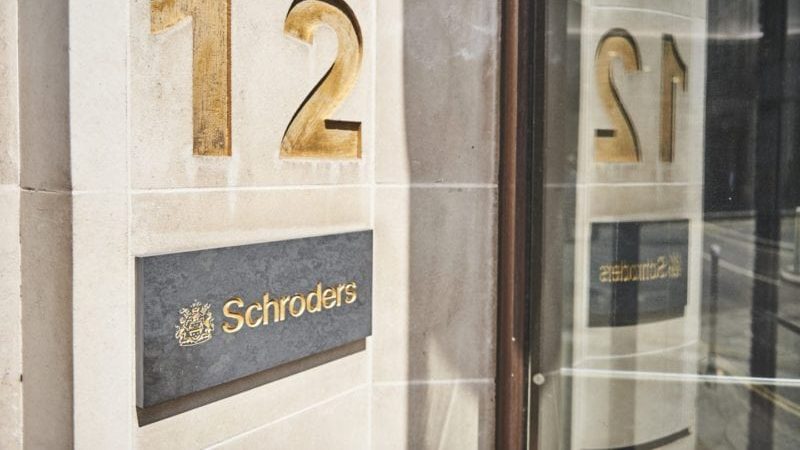Schroders could be managing close to £900m in UK private market investment trusts by the end of 2020 as details of a new investment trust announced today means it is now simultaneously fundraising for two IPOs in the space.
The Schroders BSC Social Impact Trust will target £100m to be invested in private market impact funds, co-investments and direct investments. Details of the launch come two weeks after the Schroders British Opportunities Trust published its intention to float with a target of £250m.
The last date for commitments to the latter closes on Thursday, while for the former it will be 16 December. Both launches come a year after Schroders secured management of the former Woodford Patient Capital Trusts which has now been rebranded the Schroder UK Public Private Trust.
If Schroders BSC Social Impact Trust and the Schroders British Opportunities Trust both meet their targets, then Schroders will be managing in the realm of £868m in investment trusts that invest in UK private markets, based on the current net assets in the Schroder UK Public Private Trust of £518m.
While Schroders will be the AIFM on the Schroders BSC Social Impact Trust, Big Society Capital will be the investment manager. The trust will focus on three primary asset classes: high impact housing, debt for social enterprises and social outcomes contracts.
See also: Spate of contrarian investment trust IPOs after coronavirus drought stuns investors
Schroders’ appetite for private markets
Willis Owen head of personal investing Adrian Lowcock said using Big Society Capital “really puts the emphasis of impact investing into this trust and will help Schroders avoid tags of greenwashing and labelling a trust impact when it is isn’t”.
“Schroders do seem to have got an appetite for investing in private equity ever since they acquired Woodford’s Patient Capital,” said Lowcock.
Schroders secured Neil Woodford’s former investment trust in December 2019 but they had not previously launched an investment trust for a number of years. The asset manager’s last investment trust IPO was Schroder European Real Estate, which raised £108m in December 2015.
Lowcock did not think the Schroders BSC Social Impact Trust would compete with the Schroders British Opportunities Trust for capital due to its focus on impact investing. The intention to float document from Schroders states the trust’s objective is to be the first London-listed investment company to deliver measurable positive social impact.
Cazenove Capital clients have already committed £17.5m to the launch, while Big Society Capital is expected to contribute a further £25m.
While several UK equity investment trusts, namely Tellworth British Recovery & Growth and Buffettology Smaller Companies, have failed to get off the ground in the last few months, both planned IPOs were canned before the first positive vaccine trial from Pfizer and BioNTech, plus the US presidential election result, buoyed investor sentiment.
Making impact investments accessible to retail investors
Big Society Capital CIO Jeremy Rogers told Portfolio Adviser very little of the social impact investor’s existing activity is accessible to retail investors.
“That was really the driving force behind this. What Schroders was seeing from their clients is that there was increasing interest in trying to access this market but that access is through private funds, they have intermittent closes, and you need specialist knowledge to access it.”
An intermediaries offer will be available through Hargreaves Lansdown, AJ Bell and Interactive Investor.
Schroders has experienced a lot of interest already from institutional shareholders and wealth managers, particularly acting on behalf of high net worth clients, in its pre-marketing, Rogers said. The retail offering is only being launched today, but Rogers said they expect a good spread of investors from across those areas.
For retail investors who are more familiar with investing in traditional stocks and bonds, Rogers said the best way to think about the investment trust would be that it would have characteristics similar to a mixture of property and bonds.







